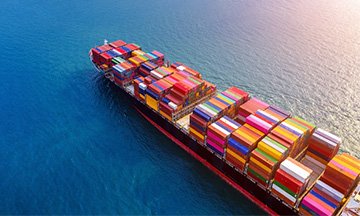Maritime Personnel Training Program
| Date | Format | Duration | Fees | |
|---|---|---|---|---|
| 05 May - 09 May, 2024 | Live Online | 5 Days | $2250 | Register |
| 27 May - 31 May, 2024 | Live Online | 5 Days | $2250 | Register |
| 07 Jul - 11 Jul, 2024 | Live Online | 5 Days | $2250 | Register |
| 19 Aug - 23 Aug, 2024 | Live Online | 5 Days | $2250 | Register |
| 07 Oct - 15 Oct, 2024 | Live Online | 7 Days | $3147 | Register |
| 10 Nov - 14 Nov, 2024 | Live Online | 5 Days | $2250 | Register |
Course Overview
Today’s highly competitive marine business professionals must deal with ongoing technological, regulatory, and commercial changes.
Who is a maritime professional?
If business really wants to keep the competitive advantage, significant portion of the knowledge, experience, and new ideas required to support this requirement. As a result, the anticipated expansion would necessitate a highly trained and multi-skilled staff from various marine and maritime professional backgrounds.
How long is a maritime course?
The maritime professional training certification program is a complete management course for individuals wishing to acquire proficient management skills appropriate for the maritime industries. The maritime industries are at the forefront of international trade and are vibrant, dynamic, and challenging industries in which to work. Our course prepares managers to create solutions for complicated problems encountered by both domestic and international business processes. It provides practical and theoretical knowledge suitable for higher-level professional and managerial roles. The course provides an opportunity to improve your managerial knowledge, skills, and analytical abilities to assist your career progression to more senior roles. This Zoe course addresses significant concerns in the marine industry’s operational, technological, and commercial elements.
Course Objectives
The foremost objective of this training course is to empower professionals with:
- Detailed knowledge about fundamental relations between economy, trade, and maritime transport
- A thorough analysis of challenges and trends in the maritime market
- Identification of the fundamental principles of maritime law within the broader context of the law and legal systems
- A clear understanding of the evaluation process of the ship finance sector in terms of markets, participants, sources of ship finance, latest trends, and future challenges
- A critical evaluation of the advantages/disadvantages of dissimilar theoretical methods to management and leadership
- Ability to explore essential safety and security concerns related to the maritime domain
- Capacity to examine the life-cycle aspects of upgrading and decision-making in trade-off situations
Training Methodology
All of Zoe Talent Solutions’ courses are customizable according to the needs of the training group. As a result, the data is thoroughly scrutinized before each session, and an experienced professional leads the training from the relevant domain.
- The majority of the sessions are based on participant input. The primary responsibility of the course leader is to elicit these responses through effective questioning and directing conversations.
- Through case studies, real workplace problems will be explored and discussed.
- Learners will have a better comprehension of the subjects due to planned reading and will help to conceive of questions ahead of time.
- Individual/ group role-play activities.
Like all Zoe training courses, this certification program follows the ‘Do-Review-Learn-Apply’ methodology.
Organisational Benefits
The benefits of this training program to the organisation are as follows:
- A rational assessment of the executive decision-making process in the maritime industry
- Ability to assess the speculative, regulatory, functioning, technical and economic aspects of the maritime industry
- Developed familiarity with theoretical as well as ability to implement practically for organisational benefits
- A solid knowledge to analyse the challenges and developments in maritime markets and to take strategic decisions
- Detailed financial analysis and associated risk for investment in the shipping industry to prevent organisational losses
- A thorough assessment of the suitability of private and public equity and high-yield bonds
- A thorough appraisal of current documentation confirms that all processes adhere to the required safety and compliance standards.
- A better understanding of diverse types of management functions and practical implementation within the organisational context to achieve better results
- A clear understanding of the notion of corporate social responsibility applied to the marine sector to raise awareness of CSR efforts and engagement in the community
- Thorough identification of diverse approaches of change management and change leadership and effective implementation to bring transformation in organisations
Personal Benefits
This course offers the following personal benefits:
- Improved competencies to lead, think and act more strategically
- The consciousness of personal strengths and opportunities for development
- Complete understanding and detailed information about the connection between economy, skill, and marine transportation
- Demonstrable competence to meet the challenges of a senior management role
- A sense of accomplishment from adding to the credibility of the organisation through improved management skills
- A better understanding of the financial structure and cost of capital of marine companies
- Better ability to regulate organisational expenses by ensuring high levels of safety and avoiding financial losses
- A clear understanding of essential notions of maritime law in the context of the law and legal systems
- Better job contentment being able to exercise a new repertoire of expertise and further enhancement of career and promotion prospects
Who Should Attend?
- Personnel fascinated with the sea, appreciate visiting various ports and desire to learn about diverse cultures
- Youngsters who want to set up a self-disciplined, ambitious, and exciting professional path for themselves
- On-board and onshore professionals who want to stay current with the ever-changing maritime sector
- Practitioners who want to enhance their existing expertise, work experience, and leadership potential while continuing to develop their professional practice
- Mariners looking for a qualification that would allow them to work in a variety of industries
Course Outline
The course will cover the following areas that are essential to maritime functioning: –
Module 1 – Maritime Industry
- Maritime overview
- Maritime theory approach
- Key maritime philosophies
- Maritime role as a trade facilitator
- Dimension of the global marine industry
Module 2 – Maritime Freight Market
- Trade pattern
- Ports and their impact on shipping
- Economic globalization and shipping
- Global trade routes and commodities
- Economics importance of maritime trade
Module 3 – Ship Types & Sizes
- Shipping business management
- Purpose, benefits, and particularities
- Ship types & sizes
- Ship designs
- Ship structure
Module 4 – Maritime Financial Management
- Economic theories
- Stages of shipping cycles
- Key principals of global marketing
- Key factors & trends in transportation mode
- Cost-optimization & value-added concerns
Module 5 – Chartering Management Process (1)
- Shipbroking overview
- Detailed chattering process
- Types of chartering
- Post- fixture operator
- Pre- fixing & post fixing
Module 6 – Chartering Management Process – ii
- Laytime calculation
- Fixture negotiations
- Voyage management
- Shipping optimization systems
- Glossary of port & shipping terms
Module 7 – Transport Intermediaries
- Freight forwarders
- Drivers of efficiency
- Non-vessel operating common carriers (NVOCCs)
- Customs brokers & export packers
- Clearance and payment procedures
Module 8 – Port & Terminal Management
- Port logistic
- Port hinterland connectivity
- Private vs. public terminal management
- Port management and concession agreements
- Trends in maritime transport and port development
Module 9 – Ship Technical Management & Inspections
- Ship parts & designs
- Safety & performance
- Purchasing inventory control
- Vessel Inspection and reports
- Dry dockings and significant repairs
Module 10 – Maritime Law
- Maritime law components
- Lex Mercatoria
- Hague-Visby Rules
- Limitation of liability
- An understanding of COGSA
Module 11 – Marine Claim & Insurance
- Marine insurance overview
- Types of marine insurance
- Marine insurance claims
- Role & duties
- Insurance brokers, claims agents, and underwriters
Module 12 – Maritime Safety & Security
- Artificial intelligence
- OHS Introduction to MLC, ISM, and ISPS
- Risk management & assessment methods
- Accident investigation in the maritime industry
- Maritime Safety and Legal Framework
- Safety and security concerns relevant to the maritime domain











